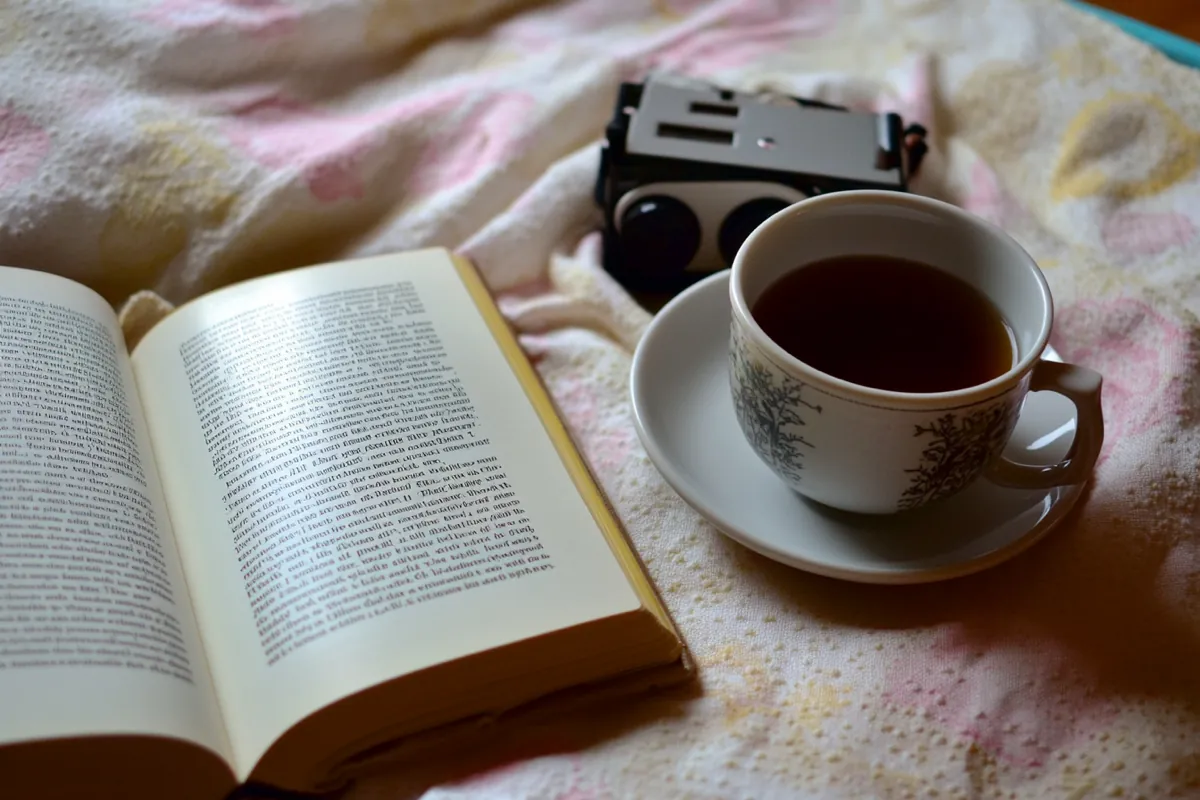Earl Grey tea has gained popularity for its distinct flavor and numerous health benefits. But one question often arises: Does Earl Grey tea help you sleep? This article explores the relationship between Earl Grey tea and sleep, while also answering related questions about its consumption at night and weight loss benefits.
Table of Contents
Introduction to Earl Grey Tea
Earl Grey tea is a unique blend of black tea infused with bergamot oil. This aromatic beverage has a long-standing tradition, offering not just flavor but also potential health benefits.
What is Earl Grey Tea?
Earl Grey tea originates from a base of black tea, which is then flavored with the oil of bergamot. This citrus fruit lends a delightful aroma and taste to the tea, making it a favorite among tea enthusiasts. The blend can be enjoyed hot or cold, and it can be served plain or with milk and sugar.
Origins and History of Earl Grey Tea
The name Earl Grey is believed to come from Charles Grey, a British Prime Minister in the 1830s. According to popular legend, he received a gift of tea flavored with bergamot oil from a Chinese envoy. Since then, the tea has evolved and become widely available across the globe. Today, many variations of Earl Grey tea exist, including those that incorporate other flavors like lavender or vanilla.
The Components of Earl Grey Tea
Understanding the components of Earl Grey tea is essential for exploring its effects on sleep.
Main Ingredients: Black Tea and Bergamot
The primary ingredients in Earl Grey tea are black tea and bergamot oil. Black tea is known for its high antioxidant content and stimulating properties. On the other hand, bergamot is recognized for its calming effects, which may help with relaxation.
Health Benefits of Black Tea
Black tea is more than just a delicious beverage; it is rich in antioxidants and has been linked to various health benefits. These include improved heart health, enhanced gut health, and potential weight management support. The caffeine content in black tea can also provide a gentle energy boost, which makes it a popular choice for many.
The Role of Bergamot in Sleep Quality
Bergamot oil is known for its calming properties. Studies suggest that it may help reduce anxiety and improve sleep quality. Therefore, the combination of black tea and bergamot in Earl Grey tea may create a unique balance between stimulation and relaxation, making it an intriguing option for evening consumption.

Does Earl Grey Tea Help You Sleep?
The impact of Earl Grey tea on sleep is a topic of interest for many. Factors such as caffeine content and the calming properties of bergamot play significant roles.
Caffeine Content in Earl Grey Tea
Earl Grey tea contains caffeine, though it is generally lower than coffee. An 8-ounce cup of Earl Grey tea typically has about 40-70 mg of caffeine. This amount can vary based on the steeping time and the type of black tea used.
Comparing Caffeine Levels with Other Teas
When we compare Earl Grey to other teas, it’s evident that it occupies a middle ground. For example:
- Green tea: 20-45 mg of caffeine per 8 ounces.
- Black tea: 40-70 mg of caffeine, similar to Earl Grey.
- Herbal tea: Usually caffeine-free.
This moderate caffeine level means that Earl Grey can provide a gentle lift without being overly stimulating, especially when consumed at the right time. If you’re sensitive to caffeine, it’s wise to monitor your intake in the evening.
Relaxation Properties of Bergamot
Bergamot oil has been studied for its potential calming effects. Research indicates that it may help lower stress levels and promote relaxation. This quality can be particularly beneficial when winding down after a long day.
Studies on Bergamot and Sleep Improvement
Several studies suggest that bergamot oil may improve sleep quality. One study revealed that participants who inhaled bergamot essential oil reported feeling more relaxed and had better sleep patterns. This indicates that the bergamot component of Earl Grey tea could potentially enhance its sleep-promoting properties.
Can I Drink Earl Grey Tea at Night?
Many people wonder, Can I drink Earl Grey tea at night? The answer depends on several factors, including personal tolerance to caffeine.
Timing and Preparation for Evening Consumption
If you enjoy Earl Grey tea and want to drink it at night, timing is essential. It’s best to consume it at least a couple of hours before bedtime. This will give your body time to process the caffeine, minimizing any potential disruptions to your sleep.
Best Practices for Brewing Earl Grey at Night
To maximize the calming effects of Earl Grey tea for nighttime consumption, consider the following:
- Brew Time: Steep your tea for a shorter duration (around 3-4 minutes) to reduce caffeine extraction.
- Temperature: Use cooler water (around 190°F) instead of boiling, which can reduce the bitterness and caffeine level.
- Additions: Consider adding calming ingredients like honey or chamomile to enhance relaxation.
By following these practices, you can enjoy Earl Grey tea as a soothing evening beverage without compromising your sleep quality.

Best Time to Drink Earl Grey Tea
Understanding the best time to drink Earl Grey tea can enhance your overall experience. This tea can be enjoyed at various times throughout the day, but its timing can significantly affect how it makes you feel.
Morning vs. Evening: Optimal Drinking Times
Earl Grey tea can be enjoyed at various times throughout the day. However, its timing can affect how it makes you feel.
Morning: Starting your day with a cup can provide a gentle caffeine boost, helping you feel alert and focused. The combination of black tea and bergamot can enhance your mood and provide the energy needed to kickstart your day.
Evening: Drinking it in the evening can be relaxing, especially when you choose a lower-caffeine preparation. This can be an excellent way to wind down after a busy day, as it combines flavor with potential sleep benefits.
Influences on Sleep and Alertness
Drinking Earl Grey tea in the morning can improve alertness and cognitive function. The caffeine content helps wake you up, making it a popular choice for those needing a boost. On the other hand, enjoying it in the evening can help you unwind, thanks to the calming effects of bergamot.
Personal Preferences and Individual Responses
Individual responses to caffeine can vary widely. Some people may find that even a small amount of caffeine in Earl Grey affects their sleep. Therefore, it’s essential to listen to your body and adjust your drinking habits accordingly. If you’re sensitive to caffeine, consider enjoying caffeine-free herbal teas in the evening.
Is Earl Grey Tea Good for Weight Loss?
Another popular question is whether Earl Grey tea is good for weight loss. The relationship between tea and weight management is complex but worth exploring.
Metabolism Boosting Effects of Earl Grey Tea
Earl Grey tea may help with weight management due to its potential to boost metabolism. The caffeine and antioxidants in black tea can increase energy expenditure.
Antioxidants: These compounds help fight free radicals and may support metabolic health. The antioxidants found in black tea can improve overall health and assist in weight management.
Caffeine: This ingredient can enhance fat oxidation, making it easier for your body to burn fat. When combined with a balanced diet and exercise, drinking Earl Grey tea may support your weight loss efforts.
Role of Hydration in Weight Management
Staying hydrated is crucial for weight management. Drinking Earl Grey tea can contribute to your daily fluid intake without adding many calories. Proper hydration helps maintain metabolic processes and can reduce feelings of hunger.
Caloric Considerations and Diet Integration
While Earl Grey tea has minimal calories when consumed plain, adding milk or sweeteners can increase its caloric content. For those watching their weight, it’s best to enjoy it without these additions or opt for low-calorie alternatives. Integrating Earl Grey tea into a balanced diet can be beneficial, but it should not be your only strategy for weight loss.
In conclusion, Earl Grey tea can be a delightful and supportive addition to your daily routine. It may help boost your metabolism and keep you hydrated, all while providing a comforting aroma and flavor.

Conclusion: Earl Grey Tea and Your Sleep Health
In summary, Does Earl Grey tea help you sleep? The answer is nuanced. Earl Grey tea combines the stimulating effects of black tea with the calming properties of bergamot. This unique blend can provide a delightful experience, whether consumed in the morning for alertness or in the evening for relaxation.
If you choose to drink Earl Grey tea at night, be mindful of your caffeine tolerance. Preparing it correctly can enhance its calming effects, making it a soothing beverage perfect for unwinding. Overall, incorporating Earl Grey tea into your routine can be beneficial, not only for sleep but for overall health and well-being.
For those interested in weight management, Earl Grey tea’s potential effects on metabolism and hydration can support your efforts. Just remember to enjoy it as part of a balanced diet and lifestyle.
Ultimately, Earl Grey tea can be a delightful addition to your daily beverage choices, whether for its flavor, health benefits, or its calming effects on sleep.
FAQ
With growing interest in Earl Grey tea, many questions arise about its consumption and effects. Here are some frequently asked questions regarding Earl Grey tea and sleep.
Is it Good to Drink Earl Grey Tea Before Bed?
Drinking Earl Grey tea before bed can be a personal choice. While bergamot may promote relaxation, the caffeine content in black tea could hinder sleep for some individuals. If you’re sensitive to caffeine, it’s best to consume Earl Grey earlier in the evening. However, if you find that it helps you unwind, it can be a soothing part of your nighttime routine.
Is Earl Grey Good for Bed?
Earl Grey tea can be a soothing choice for some before bed. The calming properties of bergamot may help reduce anxiety, making it a comforting drink. Many find that the aroma and flavor contribute to a relaxing atmosphere. However, individual responses vary, so pay attention to how your body reacts. If you find it helps, feel free to incorporate it into your evening routine.
What Does Earl Grey Tea Do for Your Body?
Earl Grey tea offers several health benefits. The antioxidants in black tea can promote heart health and improve digestion. Additionally, bergamot oil may help relieve stress and enhance mood, contributing to overall well-being. The combination of these elements makes it a delightful and potentially healthful beverage.
What are the Disadvantages of Earl Grey Tea?
While Earl Grey tea has many benefits, there are some potential downsides. The caffeine content may cause jitteriness or disrupt sleep in sensitive individuals. Additionally, excessive consumption of bergamot oil can lead to skin sensitivity or digestive issues. Moderation is key. It’s best to enjoy Earl Grey tea mindfully, especially if you have a sensitivity to caffeine or bergamot.




